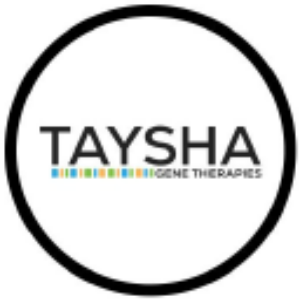Taysha Gene Therapies Announces First Pediatric Patient Dosed with TSHA-102 in REVEAL Phase 1/2 Pediatric Trial in Rett Syndrome
Initiation of REVEAL pediatric trial in the U.S. broadens the clinical evaluation of TSHA-102 to female patients 5-8 years old with stage three Rett syndrome
MHRA authorized the CTA for TSHA-102 in pediatric patients with Rett syndrome, enabling expansion of ongoing U.S. REVEAL pediatric trial into the U.K.
TSHA-102 clinical program now includes broad evaluation across pediatric, adolescent and adult patients in three countries including the U.S., U.K. and Canada
Initial safety and efficacy data for cohort one (low dose, n = 3) in the REVEAL pediatric trial expected in mid-2024
DALLAS, Jan. 10, 2024 (GLOBE NEWSWIRE) -- Taysha Gene Therapies, Inc. (Nasdaq: TSHA), a clinical-stage gene therapy company focused on developing and commercializing AAV-based gene therapies for the treatment of monogenic diseases of the central nervous system (CNS), today announced that the first pediatric patient has been dosed with TSHA-102 in the REVEAL Phase 1/2 pediatric trial in the United States (U.S.) evaluating the safety and preliminary efficacy of TSHA-102 in stage three female patients 5-8 years of age with Rett syndrome. The Company also announced the United Kingdom (U.K.) Medicines and Healthcare products Regulatory Agency (MHRA) has authorized the Clinical Trial Application (CTA) for TSHA-102 in pediatric patients, enabling expansion of the ongoing U.S. REVEAL pediatric trial into the U.K.
TSHA-102 is a self-complementary intrathecally delivered AAV9 investigational gene transfer therapy that utilizes a novel miRNA-Responsive Auto-Regulatory Element (miRARE) technology designed to mediate levels of MECP2 in the CNS on a cell-by-cell basis without risk of overexpression. Initial dosing in the REVEAL Phase 1/2 pediatric trial took place at RUSH University Medical Center in Chicago under Principal Investigator Elizabeth Berry-Kravis, M.D., Ph.D., Professor of Pediatrics, Neurology and Anatomy/Cell Biology at RUSH University Medical Center.
“Dosing the first pediatric patient with Rett syndrome marks an important step forward in our efforts to broaden the clinical evaluation of TSHA-102 to younger patients with earlier stages of Rett syndrome. We are pleased with our progress on expanding the study of TSHA-102 across a broad population of ages and stages of Rett syndrome to bring a potentially transformative treatment option to all patients and families suffering from this devastating disease,” said Sukumar Nagendran, M.D., President, and Head of R&D of Taysha. “The pediatric trial will build on our ongoing REVEAL adolescent and adult trial, where early data demonstrated improvements across multiple clinical domains in adult patients with the most advanced stage of disease. We also plan to expand our U.S. pediatric trial into the U.K. following the recent acceptance of our CTA by the MHRA.”
Elizabeth Berry-Kravis, M.D., Ph.D., Professor of Pediatrics, Neurology and Anatomy/Cell Biology, and Principal Investigator of the REVEAL pediatric trial added, "Designed as a one-time, disease-modifying treatment with the ability to mediate MECP2 expression on a cell-by-cell basis, TSHA-102 holds the potential to address a significant unmet medical need for the Rett syndrome community. By intervening early in disease, we believe TSHA-102 may provide significant therapeutic impact for pediatric patients. I look forward to evaluating this promising gene therapy and its impact on the lives of patients and their caregivers in the clinic.”
The REVEAL Phase 1/2 pediatric trial is an open-label, randomized, dose-escalation and dose-expansion study evaluating the safety and preliminary efficacy of TSHA-102 in pediatric females with Rett syndrome due to MECP2 loss-of-function mutation in the U.S. and U.K. TSHA-102 is administered as a single lumbar intrathecal injection. Part A of the study will focus on determining Maximum Administered Dose (MAD) and Maximum Tolerated Dose (MTD) in at least six patients (three per dose) aged 5-8 years old. Part B will evaluate TSHA-102 at the MAD or MTD in two age cohorts (5-8 years and 3-5 years). The Company expects to complete dosing in cohort one (low dose) of the pediatric trial and report initial safety and efficacy data in mid-2024.
TSHA-102 is also being evaluated in the ongoing first-in-human REVEAL Phase 1/2 adolescent and adult trial in females aged 12 and older with Rett syndrome in Canada. The Company previously reported initial clinical data from the first two adult patients dosed with TSHA-102. Further updates on available clinical data from the low dose cohort in the REVEAL adolescent and adult trial are expected in the first quarter of 2024. TSHA-102 has received Fast Track designation and Orphan Drug and Rare Pediatric Disease designations from the FDA and has been granted Orphan Drug designation from the European Commission.
About Rett Syndrome
Rett syndrome is a rare neurodevelopmental disorder caused by mutations in the X-linked MECP2 gene, which is a gene that’s essential for neuronal and synaptic function in the brain. The disorder is characterized by intellectual disabilities, loss of communication, seizures, slowing and/or regression of development, motor and respiratory impairment, and shortened life expectancy. Rett syndrome primarily occurs in females and is one of the most common genetic causes of severe intellectual disability. Currently, there are no approved disease-modifying therapies that treat the genetic root cause of the disease. Rett syndrome caused by a pathogenic/likely pathogenic MECP2 mutation is estimated to affect between 15,000 and 20,000 patients in the U.S., EU and U.K.
About Taysha Gene Therapies
Taysha Gene Therapies (Nasdaq: TSHA) is on a mission to eradicate monogenic CNS disease. With a singular focus on developing curative medicines, we aim to rapidly translate our treatments from bench to bedside. We have combined our team’s proven experience in gene therapy drug development and commercialization with the world-class UT Southwestern Gene Therapy Program. Together, we leverage our fully integrated platform with a goal of dramatically improving patients’ lives. More information is available at www.tayshagtx.com.
Forward-Looking Statements
This press release contains forward-looking statements within the meaning of the Private Securities Litigation Reform Act of 1995. Words such as “anticipates,” “believes,” “expects,” “intends,” “projects,” “plans,” and “future” or similar expressions are intended to identify forward-looking statements. Forward-looking statements include statements concerning the potential benefits and clinical development of TSHA-102, including the timing of dosing patients in clinical trials and availability of data from clinical trials. Forward-looking statements are based on management’s current expectations and are subject to various risks and uncertainties that could cause actual results to differ materially and adversely from those expressed or implied by such forward-looking statements. Accordingly, these forward-looking statements do not constitute guarantees of future performance, and you are cautioned not to place undue reliance on these forward-looking statements. Risks regarding our business are described in detail in our Securities and Exchange Commission (“SEC”) filings, including in our Annual Report on Form 10-K for the full-year ended December 31, 2022, and our Quarterly Report on Form 10-Q for the quarter ended September 30, 2023, both of which are available on the SEC’s website at www.sec.gov. Additional information will be made available in other filings that we make from time to time with the SEC. These forward-looking statements speak only as of the date hereof, and we disclaim any obligation to update these statements except as may be required by law.
Company Contact:
Hayleigh Collins
Director, Head of Corporate Communications and Investor Relations
Taysha Gene Therapies, Inc.
hcollins@tayshagtx.com
Media Contact:
Carolyn Hawley
Canale Communications
carolyn.hawley@canalecomm.com









